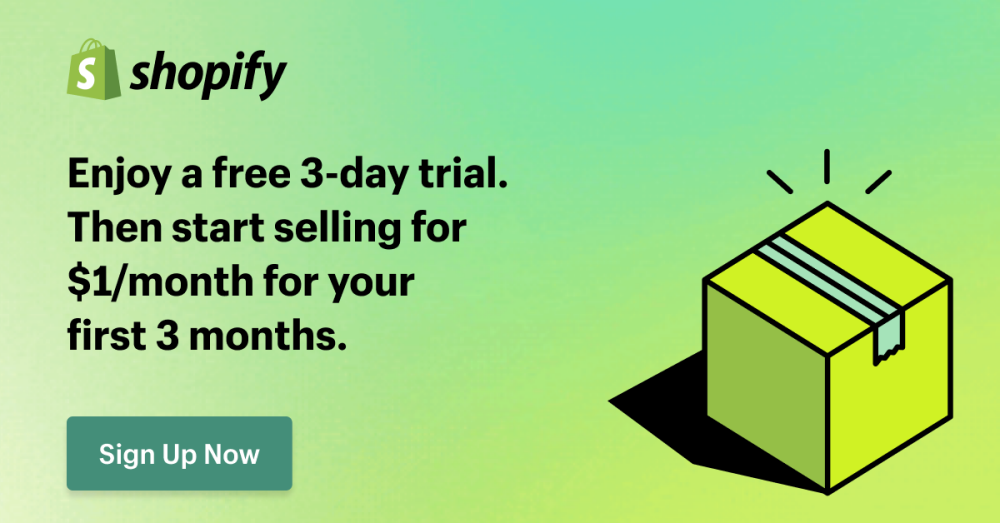Why Shopify? The Ultimate Guide to Choosing the Best E-Commerce Platform
If you’re serious about launching an online store, you’ve probably heard about Shopify. As someone who runs multiple Shopify stores and blogs about e-commerce, I can tell you that Shopify isn’t just another e-commerce platform—it’s the gold standard for online businesses. But why? What makes it stand out from the competition? And is it right for you?
Let’s break it all down.
What Makes Shopify Better Than the Competition?
When choosing an e-commerce platform, you need something scalable, easy to use, and powerful. Shopify checks all these boxes and then some. Here’s why it beats the competition:
1. All-in-One Solution
Shopify isn’t just a place to list products. It handles everything—from hosting and design to payments and marketing. Unlike WooCommerce (which requires hosting and plugins) or Magento (which demands a developer), Shopify lets anyone create a professional store with zero coding.
2. User-Friendly, Even for Beginners
New to e-commerce? No problem. Shopify has an intuitive drag-and-drop interface, meaning you can customize your store without knowing a single line of code.
3. Tons of Built-in Features
Secure payment processing (Shopify Payments, PayPal, Stripe, etc.) Mobile-responsive themes (so your store looks great on all devices) Automated inventory tracking Abandoned cart recovery (which can boost revenue by 20% or more) SEO & marketing tools (to get your store ranked on Google)
4. A Massive App Store
Need extra functionality? Shopify’s App Store has thousands of apps that let you add subscription services, upsells, social proof pop-ups, and more.
5. Scalability
Whether you’re a beginner selling five products or a million-dollar brand with warehouses worldwide, Shopify scales with you. Platforms like Big Cartel are great for small sellers, but they can’t handle high-volume businesses the way Shopify can.
—
Who Should Choose Shopify?
Shopify is perfect for:
✔️ New entrepreneurs who want an easy-to-use, all-in-one solution
✔️ Dropshippers using suppliers like AliExpress, CJdropshipping, or Print-on-Demand services
✔️ Brands looking to scale with automation, marketing tools, and integrations
✔️ Brick-and-mortar stores wanting to expand online —
Who Should Avoid Shopify?
Shopify might NOT be the best fit for:
❌ People selling only a few items per year (Etsy or Gumroad may be better)
❌ Sellers who don’t want to pay monthly fees (Shopify plans start at $39/month)
❌ Advanced developers needing deep customization (Magento or WooCommerce may offer more flexibility)
—
How Much Does It Cost to Start a Shopify Store?
Let’s talk money. Here’s what you’ll need to budget for when launching a Shopify store:
Basic Expenses
💰 Shopify Plan: $39/month (Basic Plan)
💰 Domain Name: $10–$20/year
💰 Apps: $0–$50/month (optional but useful)
💰 Paid Theme (Optional): $100–$350 one-time Marketing Costs
💰 Facebook & Instagram Ads: $100–$500+ to start
💰 Influencer Marketing: $50–$500 per post
💰 Email Marketing Software: $0–$30/month Total Startup Cost: $150–$1000+, depending on strategy
—
How Long Does It Take to See a Profit?
Short answer: It depends. If you’re selling winning products and running good ads, you can start seeing sales in a few days or weeks. However, profitability can take 3-6 months as you optimize ads, improve conversion rates, and build an audience.
—
What Other Platforms Should You Connect to Shopify?
To maximize your Shopify store’s potential, you’ll want to integrate these platforms: Facebook & Instagram (for ads & shopping) Google Merchant Center (to get products listed on Google Shopping) TikTok (for viral product marketing) Klaviyo or Omnisend (for email & SMS marketing) Zendrop, Spocket, or Printify (for dropshipping & POD fulfillment) Amazon & eBay (if you want to expand beyond Shopify)
—
Best Selling Products Right Now—And Will They Last?
Here’s what’s hot in 2025 and whether they’ll remain profitable:
🔥 Smart Home Gadgets ✅ Long-term trend
🔥 Pet Accessories & Custom Pet Products ✅ Always in demand
🔥 Health & Wellness (e.g., supplements, fitness gear) ✅ Ever-growing market
🔥 Eco-Friendly Products ✅ Increasing sustainability movement
🔥 AI-Integrated Products ✅ Emerging but highly competitive
What to avoid?
Fads like fidget spinners, unless you’re prepared to pivot fast.
—
How to Research a Long-Term Winning Product
Don’t just chase trends. Instead, use data-driven research:
✔️ Google Trends – See if demand is growing or declining
✔️ Amazon & Etsy Best Sellers – Identify consistently high-ranking products
✔️ Facebook/TikTok Ads Library – Analyze what’s trending in ads
✔️ Reddit & Quora – Find problems people want solved
✔️ Supplier Research (Alibaba, Spocket, Zendrop) – Look for unique, high-quality products
—
How to Scale a Shopify Store
Want to go from a few sales a week to thousands per day? Here’s how:
1. Optimize Your Store
Improve page speed Write compelling product descriptions Use high-converting images & videos
2. Scale Winning Ads
Test multiple audiences & creatives Increase ad spend on high-ROI campaigns
3. Leverage Influencer & Affiliate Marketing
Partner with Instagram/TikTok influencers Start an affiliate program to drive sales
4. Expand to Multiple Channels
Sell on Amazon, Walmart, or eBay Run Google Shopping & YouTube ads
5. Automate with Apps
Use chatbots for customer service Set up retargeting ads automatically
—
Should You Diversify Beyond Shopify?
Yes! While Shopify should be your core store, relying on one platform is risky. Diversify by:
✔️ Building a presence on Amazon, Etsy, & eBay
✔️ Using email marketing & SMS to build a loyal audience
✔️ Creating a branded website outside of Shopify (WordPress, Webflow, etc.)
✔️ Starting a subscription box or membership site for recurring revenue
—
Final Thoughts: Is Shopify Right for You?
If you want a powerful, beginner-friendly platform that lets you build, scale, and automate an online store, Shopify is your best bet. But don’t just take my word for it—try Shopify’s free trial and start testing today! If you’re serious about e-commerce, there’s no better time to start than right now.
Ready to launch? Click here to start your Shopify store today! 🚀


